|
The information on the website was posted to be educational. Sometimes pictures we post may be funny, some may be sad, some may find them to be cute or inspirational. We have every emotion you could imagine running through our minds at one point or another when creating new pages and posting to our Facebook page. We get private messages constantly, which we do not mind, but there have been a lot of times when the person asking the questions clearly hasn't done their homework. It can be extremely exhausting and frustrating, as a pig parent, to answer these very basic questions while being politically correct. We quickly learned that kindness will always take you further than a bitter attitude. People reach out for help because they need help, not a lecture about how they should've researched before bringing a pig home. Sometimes, it is hard not to say that because that is the feeling we sometimes get. Everyone has a different background, varying degrees of knowledge about pigs and some think they know more than they actually do. We do not claim to know everything there is to know about pigs, but between everyone who is a part of our team? We can usually pull our resources together to help with any questions that are asked. There are times when a pig just needs a vet and no amount of information is helpful and ONLY a vet should be involved. If we advise you that your pig needs to be seen ASAP, that is because we feel like your situation is urgent and truly feel like your pig is at risk if not seen and treated by a licensed veterinarian. Negativity isn't something we endorse, tolerate, engage in or condone. We try very hard to treat everyone with respect, we do not belittle anyone who reaches out for help and we will go above and beyond to help anyone who does chose to contact us, whether that be via Facebook, private message or email. Everyone was new to pigs at one point or another. For example, when I got my first pig, there was no Facebook, there were no groups that were around to answer any questions about my pig. This is one of the reasons why we created one. (Mini Pig Info Group) But we also understand that not everyone has access to social media or choses to have a Facebook page or Instagram account which is why we felt it was so important to create a website for those who were searching for answers and finding it difficult to sort through the responses to get an accurate answer. We don't necessarily have all the answers to every question...but we do have a team of people that we can consult that DO know the answers. Some of our mini pig info team works behind the scenes and are a blessing to everyone in the pig community. We have vet support, rescue support and other experienced piggy parent support and we are grateful for them all. What each person brings to the table is a unique point of view and options that some of us may not have known were available. If you haven't made the decision to get a pig, please read some of our articles that discuss things you should consider before getting a pig to be sure a pig is the right pet for you. You can start by clicking here. Our goal is to give accurate, up to date information to those who need it and to educate anyone who wants to learn about pigs. We do not make money by working on this website, we do not get paid for answering questions, we have nothing to sell. Therefore, we have nothing to gain by doing what we are doing. Everyone on the MPI team does it for the love of pigs. Thats it. We love our pigs, we love your pigs, we love everyones pigs and never want to see any of them mistreated. Our mission is to advocate and protect pigs and we like to bring awareness to the good pig rescues, mainly so people know they're out there. I wasn't aware of the unwanted/homeless pig problem until about 3 years ago. I had NO idea there were so many pigs searching for a loving family and it makes me sad to see there are so many more that need homes because a family wasn't prepared for a pig to begin with. We have many many pages on the website to help guide you through the various stages of a pigs life. Our new piggy parent section is a great place to start if you are new to pigs and have already brought a pig home. You can click here to read that section. The website is as all-inclusive as possible, but it will never be done. We constantly add information and pictures and improve on what's already there. So please check back often for updates. Please let us know if there is something you feel needs to be added to the website too. We are always looking for new information, new techniques and additional resources for others to have at their disposal. The basics of pigs is relatively easy...but something you need to start from day one. You will know your pig better than anyone else. While it is extremely important that you build a relationship with a veterinarian, it is also important that you are able to identify that there may be a problem that will require your veterinarian to be involved. You want to seek out an experienced veterinarian. Having that experience can be the difference between life and death. An inexperienced vet may not be able to recognize symptoms of life threatening diseases early on. Early detection and treatment increase your pigs chances of survival tenfold. Take your pig in for routine visits, vaccinate based on your vets recommendations, spay and/or neuter. This relationship can be put to the test when it comes down to an emergency. Always have a back up plan or back up vet. Know who you can call in the event there is an emergency. Murphy's law tells us our pigs won't get sick Monday thru Friday, but instead, they'll show signs of sickness on weekends, nights and holidays. Click here to see our list of vets that see pigs. The list is 95% confirmed and more are added everyday. Establish a relationship with your vet and find out how to handle emergencies. Ask for mobile vet recommendations from your vet in case you need someone to come to you. Remember, as pigs grow, so does the issue of transporting them. It is extremely difficult to get an unwilling 150lb pig into a vehicle in order to take them to the vets office to be seen. Plan ahead, crate train, get a ramp and/or harness and make car rides something your pig enjoys. (Click here to read more about harness training your pig) All pigs will grow. There are the rare few that may stay on the smaller side, but there is NO such a thing as a teacup pig, micro pig, micro mini pig, designer pig, pixie pig, "genetically altered pig" (which I have seen to be the latest lie), apartment pig, pocket pig, dandy pig, or any other term referring to small pigs. These are NOT breeds. These are just terms that have been used to mislead people into thinking the piglet they're getting will stay small. Some will argue that they've seen the parents and they were small, and they may be on the smaller side. BUT, how old are the parents? Pigs can breed very very early and although these people are putting their pigs at risk by breeding them so young, a lot of these "adult" pigs are actually babies themselves, and aren't nearly done growing yet. To call them adults is a flat out lie. Pigs can grow until they're 5 years old, the majority of the growing will be done within the first 3 years, but maturity is defined as the time when the epiphyseal plates in the long bones close, this typically occurs around 5 years old. We asked our fans to show us baby pictures and post more recent pictures for comparison reasons, you can click here to view that page and see realistic sizes of pigs. You can click here to read about actual breeds of pigs, notice mini is also NOT a breed, but rather a classification of pigs typically seen as pets. Click here to read more about the "teacup" pig myth. We will always recommend that you adopt a pig in need, some pig rescues have pigs that have reached maturity, already trained, very loving and just waiting on a forever family to take them home. Please consider rescuing a pig. You can click here to see a list of pig rescues. We recently added a page for others to post adoptable pigs. You can click here to see the map of adoptable pigs available. Whether you are rescuing an older pig or bringing home a piglet, if you have other pigs, you need to separate them until you have a clean bill of health. Pigs need time to get used to the idea of having another pig in their area and when introductions are rushed or not done right, pigs will fight and things can get vicious. Pigs who aren't given time to become acclimated to a new pig will try to prove who the "top hog" will be. That includes fighting. A pig that is given the opportunity to see and hear another pig with a barrier is far less likely to show signs of aggression when introduced face to face than a pig who is just put in the same area with another pig and no barrier. The risk of disease should be enough to stop you from doing that, but again, back to the basics, some aren't aware of the possibilities. Mites can spread pig to pig, some of the skin disorders and diseases can be spread from pig to pig...so its best to get a new pig checked out before placing with your beloved pet, just to be on the safe side. Remember, intact pigs WILL try to attract a mate and they will breed if left together. Pigs separated by a gate have been impregnated by another THROUGH a barrier with large enough spaces for the genitalia to push through. ALL pigs should be spayed/neutered to prevent future health problems in addition to additional unwanted pigs, you can click here to read more about why it is important to spay/neuter your pig(s). All these things need to be considered when bringing a new pig home. Click here to learn more about how to properly introduce a new pig to your family. You should always get a baseline temperature on your pig when your pig is NOT sick. Core body temperatures somewhat vary from pig to pig and region to region. Time of day can impact the temperature as well and so can activity. So, you should take your pigs temperature, using a digital thermometer, several times a day and record your results. Include time of day and activity prior to you checking it so you know what the normal core body temperature should be for your pig. Click here to read steps you can take and appropriate medications that can be safely used with pigs should your pig have a fever. Remember, a behavior change combined with a fever may indicate an underlying infection, should this be the case, be sure to call your vet. Building a trusting bond with a pig is certainly important. Pigs are not naturally trusting animals, they make you earn trust, they don't hand it out to just anyone. Doing things a pig may not enjoy later in life when they're young and making these positive experiences will be paramount to your success as your pig ages. Hoof care, for example, is maintenance care that can be home at home by someone without a ton of experience. In order to accomplish this, you will need to start touching the hooves and using tools just to get your pig used to the idea of having their hooves worked on without protest. Click here to read more about hoof care. Once you make this part of your daily/weekly or monthly routine, when the need arises, your pig will let you trim the hooves versus having to call a vet or farrier for assistance. The pig who lets their piggy parent trim their hooves will also not be subject to risky sedation because typically, the pigs that are trained to allow this, will not need medications for you to accomplish this goal. That same theory applies to most of the routine care. Bathing, for example, isn't usually a pleasant experience the first time, however, a pig who has a good experience to refer back to will be less likely to fight when a bath is needed. You're pig will soon realize there is nothing to be afraid of. Although tusk trims "can" be done in the home setting, we do not recommend an inexperienced person trim a pigs tusks. There are too many risks for an untrained person to trim tusks and fracturing a tooth or exposing the tooth pulp can lead to infections and other problems later down the road. Touch their mouth, ears, hooves, every part of their body and desensitize them to you touching them so they don't get scared when you have to. Not only will this allow you to be able to do routine things yourself, but also provides your pig with that security he/she needs to build that trusting relationship with you. Desensitizing your pig to routine maintenance type things is key. Some pigs begin to display behavioral issues as they age, some is due to spoiled pig syndrome, some are due to food aggression and other times a pig is acting out in an aggressive way. ALL of these issues need to be addressed and we have pages that discuss how you can accomplish or at least get started. Aggressive pigs-click here. Food aggression- click here. Spoiled pig syndrome- click here. Most people do not factor in the cost of spaying and neutering their pig. Intact pigs do NOT make great pets. Between the hormone driven behavior and the mood swings (PMS), you will soon find that spaying and neutering is one of the most important things you can do for your pig. Intact pigs have a really high % of developing life threatening reproductive tumors and in order to save your pigs life, you will have to pay for a risky and complicated surgery to remove the tumor and the vet will likely spay/neuter at that time, only now? It will cost 10x more. All of this can be completely avoided if you spay and neuter early on. Spaying/neutering when your pig is young ELIMINATES the risk of them developing reproductive tumors/infections, allows their hormones to normalize which also helps with any behavioral issues and prolongs your pigs life by a long shot. Doing this while your pig is young is also a less risky procedure, they do not require as much iso gas for sedation reasons because they don't have the fat that the gas must perfuse though, because of the lack of adipose tissue, the surgery is less complicated and most vets who spay/neuter also feel more comfortable doing these procedures on a smaller pig because the time under anesthesia is far less than when they're bigger. These surgeries vary in price from region to region and vet to vet. Depending on the experience level and market demand, the prices can range from 100.00 all the way up to 1500.00. Do it early, save yourself some heartache and money. Click here to read about the importance of spaying and neutering and also to see pictures from actual procedures so you will know what to expect. We have a section on the website dedicated to appropriate sedation/anesthesia as well. You can read about that by clicking here and you can read about how to care for your pig before and after a surgical procedure by clicking here. Know your pigs potty habits. Take one weekend and write down when your pig has to defecate or urinate after eating/drinking. Write this information in a dedicated pig journal. Do this once a month for a few months so you get a good idea of its accuracy. By doing this, you will know when your pig hasn't peed or pooped. A pig that has ate and drank, but struggling to urinate or defecate can indicate big problems. Being able to identify this early on can potentially save your pigs life. If you know your pig usually poops 4 times a day and hasn't, you can use that information to eliminate some possibilities or decide that there may be an underlying medical issue that needs to be addressed by a vet. Combine no urination, no pooping and/or with a fever; these symptoms can can point to UTI, obstruction, and many other things, but these diagnoses need to be given by a vet who has done a hands on assessment. We also have a health form that you can download and use to try and have as many details as possible if your pig should become ill. You can click here to read more about common illnesses. You can purchase pet health insurance to help with the costs of routine care as well as any health issues that may arise. Click here to learn more about pet insurance and who provides insurance for pigs. Vaccinations can lessen your pigs chances of contracting some of the more common illnesses. Click here to read about vaccinating your pig.
Know your pigs likes and dislikes when it comes to food. A balanced diet is super important to your pigs overall health. Not providing correct nutrients can lead to serious medical complications and vitamin/mineral deficiencies. If you need to "hide" medications at anytime and you know what foods your pigs would do anything for, you now can create a medication delivery system. Incorporating nutritious foods into your pigs diet can help them with a well balanced diet. Click here to read more about nutrition. This section is broken up into a few pages such as how to help your obese pig lose weight, pig approved veggies/fruits and what an unhealthy versus healthy pig looks like, etc. If you click next at the bottom of each page, the discussions will continue or you can hover your mouse over the nutrition section and the subsections will display if there is one particular subject you're interested in reading more about. It was recently brought to our attention that there are breeders that will give very specific instructions regarding how to feed your pig. One set of guidelines, that I hope and pray aren't true, is to feed the piglet ELEVEN pellets and iceberg lettuce. FOR THE ENTIRE DAY!!!!!That's it. I was appalled that anyone would number 1, ever tell someone to starve their pig and number 2, shocked that anyone would EVER actually do it. But apparently it has and does happen. That is HORRIBLE!!!!!! Do not starve your pig. Feed them based on the recommendations from the companies that spend millions of dollars formulating feed designed to meet your pigs nutritional needs, do not listen to some random person with no degree in nutrition and expect to have a healthy pig. Starving a pig is cruel for a number of reasons, but know that a pig who is malnourished will not live a long happy life. Their lives will be miserable and sad. Click here to read about starved pigs and how that affects them. Try it for yourself. Take 11 pieces of cereal and make that last the entire day along with iceberg lettuce. See how good you feel when you are starving and feel like you're going to pass out from the hunger. Now imagine that there is nothing you can do about it because you're a pig. Know every inch of your pigs body. Ideally, a body check should be done every night. The temperatures have started to rise in the US, with warmer weather coming about, some of the parasite type insects are out in full force, like ticks. Ticks are a pest and use our pigs as a host. Some ticks have been identified as carriers of Lyme's disease. If your pig has a tick attached, the tick needs to be removed. Click here to learn more about summertime pests and how to control them from invading your pig. But noting differences on your pigs body can help you identify life threatening illnesses, and increase the chances of recovery if caught early. If you see something that wasn't there yesterday, utilize the form on our website to help you track what may be going on and paint a clear and detailed picture of the situation for your vet so that a diagnosis can be easily achieved. You can find that form by clicking here.
Providing your pig with a safe and pig friendly environment will allow your pig to thrive and be a pig without the threat of being attacked from predator type animals. Dogs, for example, are known enemies to pigs. Click here to read more about the dangers. Outdoor time is super important for pigs. They love to root and essential vitamins and minerals can be found in the soil. Pigs that are kept indoors 24/7 tend to have obesity issues, behavioral problems as well as nutritional deficiencies. A sturdy outdoor shelter out of the elements, free from drafts is also very important to your pig feeling secure. Click here to see shelter and pen ideas. Because the pig version of Maslow's theory is difficult to read on the mobile version, we included a downloadable file under the picture so you can zoom in and read what we have added to utilize his theory with pigs. There are also toxic substances that can potentially be in a backyard including plants or chemicals. Click here to read more about items that are known to be toxic to pigs. First aid for your pig. This is a MUST know. What medications can be given for an upset belly? What should you do if your pig is vomiting? All of these questions as well as a basic first aid kit should be on hand and the information to build a kit as well as directions for simple illnesses can be found by clicking here. You can learn how to do CPR and the Heimlich maneuver for a pig by clicking here.
Keeping these things in mind, along with the willingness to participate in your pigs care, will pave the way for you and your pig to live a long happy life together. Know when to reach out for help, research often, feel free to message us or send an email for any questions, but ask for help if you need it. Educate yourself, but know your limitations. Know when it's time to involve a vet and know what you are able to manage in the home setting.
1 Comment
ann
11/20/2016 10:53:02 am
Reply
Leave a Reply. |
AuthorsBrittany Sawyer Archives
July 2019
Categories
All
|
||||||||||||
-
- Direct Links To Website Content
- Read BEFORE You Add A Pig To Your Family
- Mini Pig Info Mission
- Teacup/Micro Pig Myth
- What Is A Mini Pig?
- Mini Pig Breeds: Which Ones Are Really Breeds?
- Adoptable Mini Pigs
- Are You As Smart As Your Pig?
- Mini Pig Info Education Series
- Social Media Feeds
- Zoonotic Diseases & Mini Pigs
- Mini Pigs Are NOT Gifts!
- Media/News Links
-
- Pig Health Forms: Tools To Use To Determine If Your Pig Is Sick
-
- Mini Pigs & Erysipelas: Life Saving Info About This Disease
- Dippity Pig Syndrome In Mini Pigs
- Mini Pig Salt Toxicity/Water Deprivation
- Leptospirosis In Mini Pigs
- Swine Pox & Mini Pigs
- Gastric Ulcers: Common Problem For Mini Pigs
- Brucellosis And Mini Pigs
- Mini Pig Pneumonia & Swine Flu
- Foot and Mouth Disease (FMD): A Problem For Pigs In Other Countires
- Pseudorabies: Is My Mini Pig At Risk?
- Mycoplasma Hyosynoviae & Mini Pigs
- Head Tilt In Mini Pigs
- Mini Pig Obstructions: How To Reduce The Risk For Your Pig
- Seizures In Mini Pigs
- Mini Pig Salmonellosis
- PSS (Porcine Stress Syndrome)
- Urinary Tract Infections (UTI) In Mini Pigs
- Urinary Blockages: A Serious Problem For Mini Pigs
- Arthritis And Mini Pigs
- Mini Pig Artophic Rhinitis
- Mini Pig Heart Disease Possibilities
- Common Mini Pig Gastrointestinal Disorders
- Mini Pigs & Pasteurellosis
- Mini Pigs And Rabies
- Mini Pig Genetic Abnormalities
- MIni Pigs & Cancer
- Mini Pig Cough
- Causes For Sudden Death In Mini Pigs
-
- Mini Pig Approved Foods
- Natural Diet For Mini Pigs: How To Create A All-Natural Diet For Your Pig
- Balancing Your Mini Pigs Diet With Activity
- Mini Pig Feed Concerns: Bad/Spoiled Feed
- Mini Pig Nutritional Deficiencies
- How To Estimate A Pigs Weight Without A Scale
- Mini Pig Body Scoring: What Does An Unhealthy Mini Pig Look Like?
- How To Help Your Mini Pig Lose Weight
- Mini Pig Treats And Recipes
- Mini Pig Hydration: The Importance Of Water
-
- Mini Pig CPR/Heimlich Manuever
- Mini Pig Constipation
- How To Treat A Vomiting Mini Pig
- What To Do If Your Mini Pig Gorges On Food?
- Salt Toxicity/Water Deprivation In Mini Pigs
- How To Treat A Fever In Mini Pigs
- Basic Wound Care For Mini Pigs
- Acute Mini Pig Paralysis
- Mini Pig Shock
- What To Do If Your Mini Pig Sustains A Fracture?
- Treatment For Mini Pig Diarrhea
- Hidden Dangers For Mini Pigs: Snakes & Spiders
- Mini Pig Emergency Supplies
- Most Common Mini Pig Problems
-
- Underaged Piglets- The Dangers & Amount Of Care Involved
- How To Estimate The Age Of A Mini Pig
- Mini Pigs and Dogs- Predator Versus Prey- A Risky Combination
- Mini Pig Name Suggestions
- Bathing Mini Pigs
- Mini Pig Travel Regulations
- Mini Pig FAQ
- "Forking" Mini Pigs- No, We Aren't Talking About Eating!
- Mini Pig Potty Training Tips
- Pigs And Stairs: A Potentially Flawed Living Arrangement
- Capturing A Mini Pig On The Loose
- Indoor Mini Pig Spaces
-
-
- Mini Pig Sounds 101
- Mini Pig Harness Training
- Important Information & Tips For Training Your Mini Pig
- Teaching Your Pig To Do Tricks
- Decoding Mini Pig Behavioral Problems
- Mini Pig Behavior: A Quick Introduction
- Common Behavioral Issues In Mini Pigs
- Move The Pig By Lydia Weaver
- Food Aggression In Mini Pigs
- Aggressive Mini Pigs
- Spoiled Pig Syndrome
- ESA (Emotional Support Animals)/Therapy Pets And Service Animals: What Applies To My Mini Pig?
- Mini Pigs Can Be Fun: Training Your Pig Is Key!
-
- Mini Pig Themed Greeting Cards
- Mini Pig DIY Items: Ideas & Inspiration
- Mini Pig Community Chat Forum
- The Loss Of Your Mini Pig
- Website Survey & Various MPI Video Collection
- Mini Pig Research/News Links
- PAL (Pig Advocates League): Our Nonprofit Sister Organization
- Kids Corner: Mini Pig Items For Kids
- Mini Pig Meme's:
- Mini Pig Sitters
- Mini Pig Outreach-Educational Information
- Community Groups For Mini Pig Parents
- "Pigtionary"
- Pig Anatomy and Terminology
- Mini Pig Info Store
- Dear Pig Whisperers Blog
-
- Direct Links To Website Content
- Read BEFORE You Add A Pig To Your Family
- Mini Pig Info Mission
- Teacup/Micro Pig Myth
- What Is A Mini Pig?
- Mini Pig Breeds: Which Ones Are Really Breeds?
- Adoptable Mini Pigs
- Are You As Smart As Your Pig?
- Mini Pig Info Education Series
- Social Media Feeds
- Zoonotic Diseases & Mini Pigs
- Mini Pigs Are NOT Gifts!
- Media/News Links
-
- Pig Health Forms: Tools To Use To Determine If Your Pig Is Sick
-
- Mini Pigs & Erysipelas: Life Saving Info About This Disease
- Dippity Pig Syndrome In Mini Pigs
- Mini Pig Salt Toxicity/Water Deprivation
- Leptospirosis In Mini Pigs
- Swine Pox & Mini Pigs
- Gastric Ulcers: Common Problem For Mini Pigs
- Brucellosis And Mini Pigs
- Mini Pig Pneumonia & Swine Flu
- Foot and Mouth Disease (FMD): A Problem For Pigs In Other Countires
- Pseudorabies: Is My Mini Pig At Risk?
- Mycoplasma Hyosynoviae & Mini Pigs
- Head Tilt In Mini Pigs
- Mini Pig Obstructions: How To Reduce The Risk For Your Pig
- Seizures In Mini Pigs
- Mini Pig Salmonellosis
- PSS (Porcine Stress Syndrome)
- Urinary Tract Infections (UTI) In Mini Pigs
- Urinary Blockages: A Serious Problem For Mini Pigs
- Arthritis And Mini Pigs
- Mini Pig Artophic Rhinitis
- Mini Pig Heart Disease Possibilities
- Common Mini Pig Gastrointestinal Disorders
- Mini Pigs & Pasteurellosis
- Mini Pigs And Rabies
- Mini Pig Genetic Abnormalities
- MIni Pigs & Cancer
- Mini Pig Cough
- Causes For Sudden Death In Mini Pigs
-
- Mini Pig Approved Foods
- Natural Diet For Mini Pigs: How To Create A All-Natural Diet For Your Pig
- Balancing Your Mini Pigs Diet With Activity
- Mini Pig Feed Concerns: Bad/Spoiled Feed
- Mini Pig Nutritional Deficiencies
- How To Estimate A Pigs Weight Without A Scale
- Mini Pig Body Scoring: What Does An Unhealthy Mini Pig Look Like?
- How To Help Your Mini Pig Lose Weight
- Mini Pig Treats And Recipes
- Mini Pig Hydration: The Importance Of Water
-
- Mini Pig CPR/Heimlich Manuever
- Mini Pig Constipation
- How To Treat A Vomiting Mini Pig
- What To Do If Your Mini Pig Gorges On Food?
- Salt Toxicity/Water Deprivation In Mini Pigs
- How To Treat A Fever In Mini Pigs
- Basic Wound Care For Mini Pigs
- Acute Mini Pig Paralysis
- Mini Pig Shock
- What To Do If Your Mini Pig Sustains A Fracture?
- Treatment For Mini Pig Diarrhea
- Hidden Dangers For Mini Pigs: Snakes & Spiders
- Mini Pig Emergency Supplies
- Most Common Mini Pig Problems
-
- Underaged Piglets- The Dangers & Amount Of Care Involved
- How To Estimate The Age Of A Mini Pig
- Mini Pigs and Dogs- Predator Versus Prey- A Risky Combination
- Mini Pig Name Suggestions
- Bathing Mini Pigs
- Mini Pig Travel Regulations
- Mini Pig FAQ
- "Forking" Mini Pigs- No, We Aren't Talking About Eating!
- Mini Pig Potty Training Tips
- Pigs And Stairs: A Potentially Flawed Living Arrangement
- Capturing A Mini Pig On The Loose
- Indoor Mini Pig Spaces
-
-
- Mini Pig Sounds 101
- Mini Pig Harness Training
- Important Information & Tips For Training Your Mini Pig
- Teaching Your Pig To Do Tricks
- Decoding Mini Pig Behavioral Problems
- Mini Pig Behavior: A Quick Introduction
- Common Behavioral Issues In Mini Pigs
- Move The Pig By Lydia Weaver
- Food Aggression In Mini Pigs
- Aggressive Mini Pigs
- Spoiled Pig Syndrome
- ESA (Emotional Support Animals)/Therapy Pets And Service Animals: What Applies To My Mini Pig?
- Mini Pigs Can Be Fun: Training Your Pig Is Key!
-
- Mini Pig Themed Greeting Cards
- Mini Pig DIY Items: Ideas & Inspiration
- Mini Pig Community Chat Forum
- The Loss Of Your Mini Pig
- Website Survey & Various MPI Video Collection
- Mini Pig Research/News Links
- PAL (Pig Advocates League): Our Nonprofit Sister Organization
- Kids Corner: Mini Pig Items For Kids
- Mini Pig Meme's:
- Mini Pig Sitters
- Mini Pig Outreach-Educational Information
- Community Groups For Mini Pig Parents
- "Pigtionary"
- Pig Anatomy and Terminology
- Mini Pig Info Store
- Dear Pig Whisperers Blog


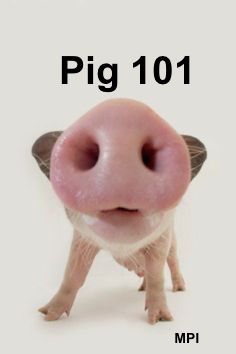
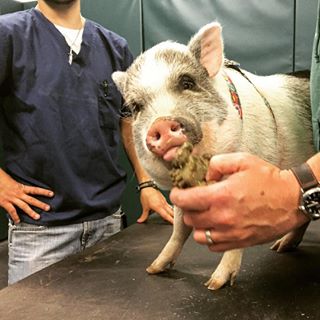
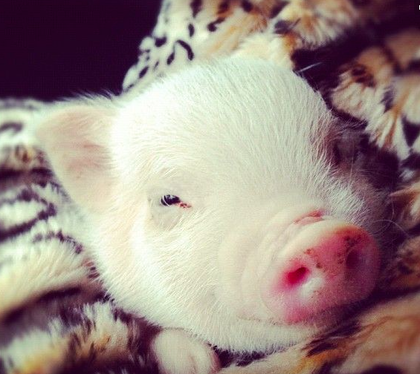
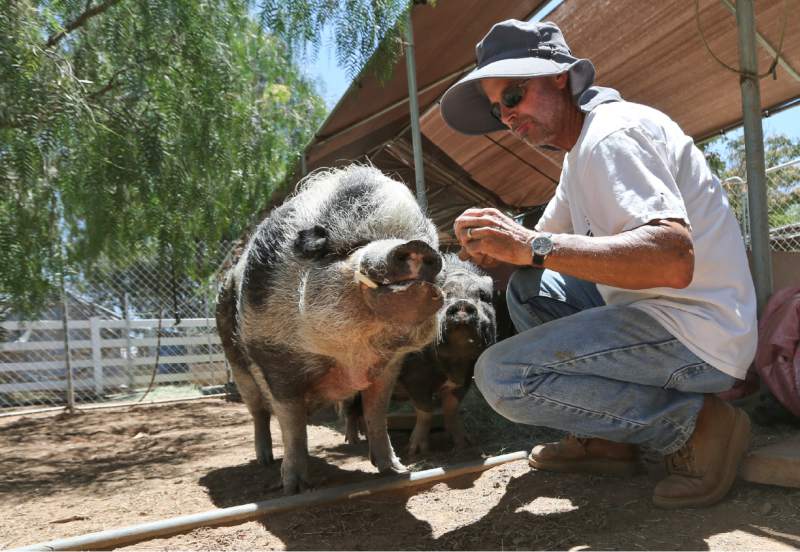
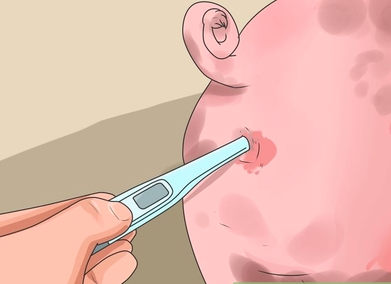
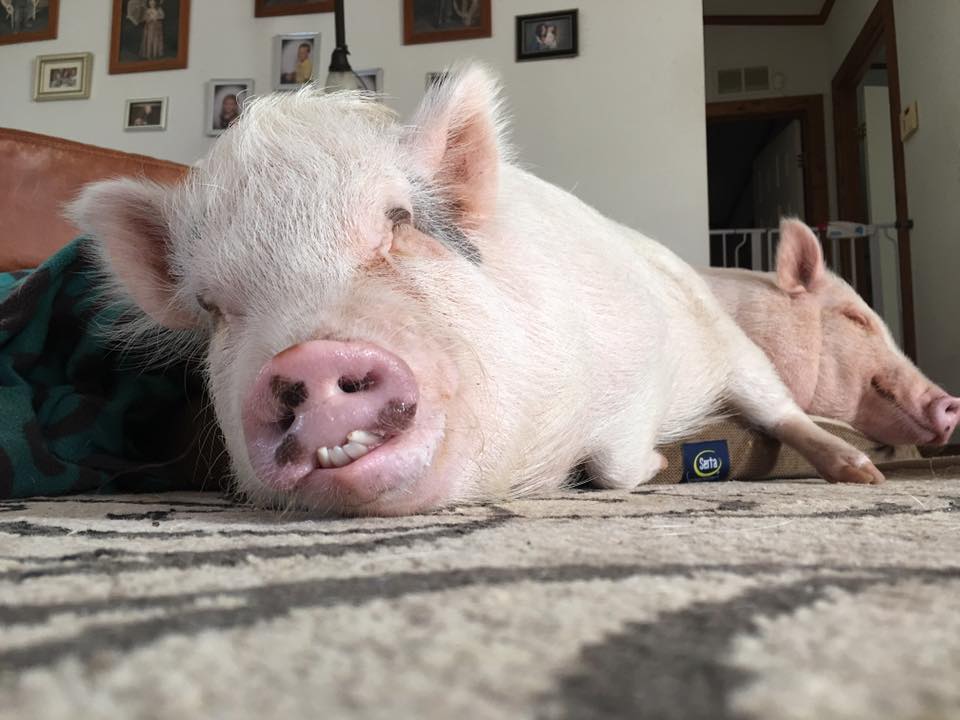
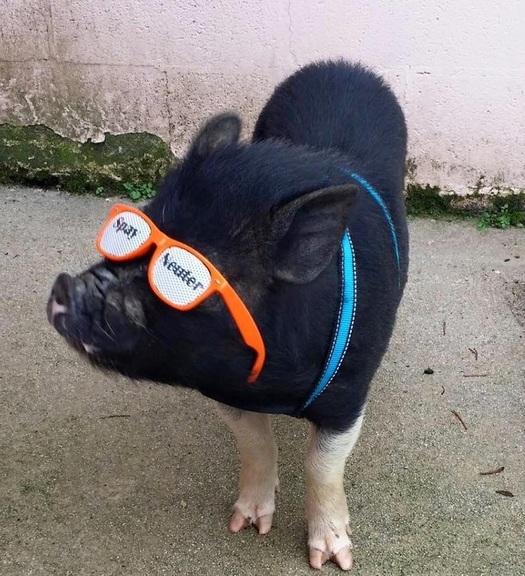

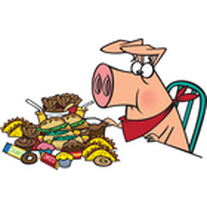
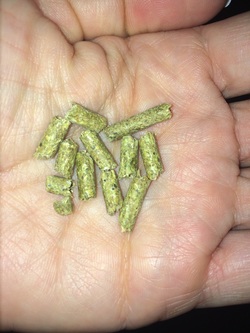
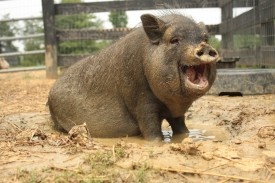
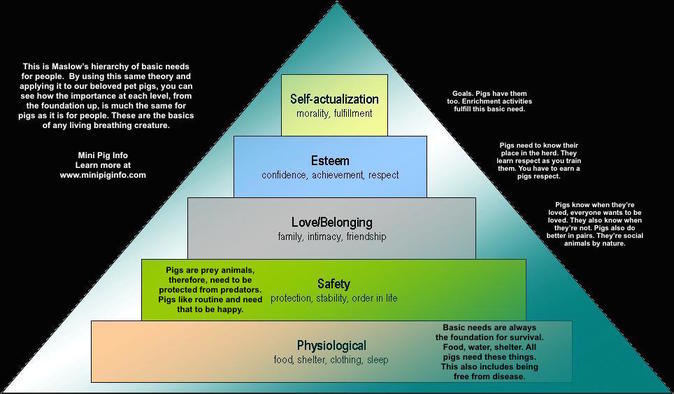
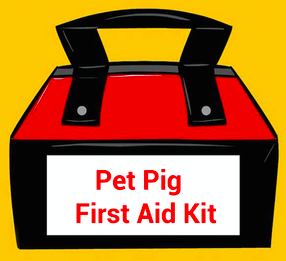


 RSS Feed
RSS Feed